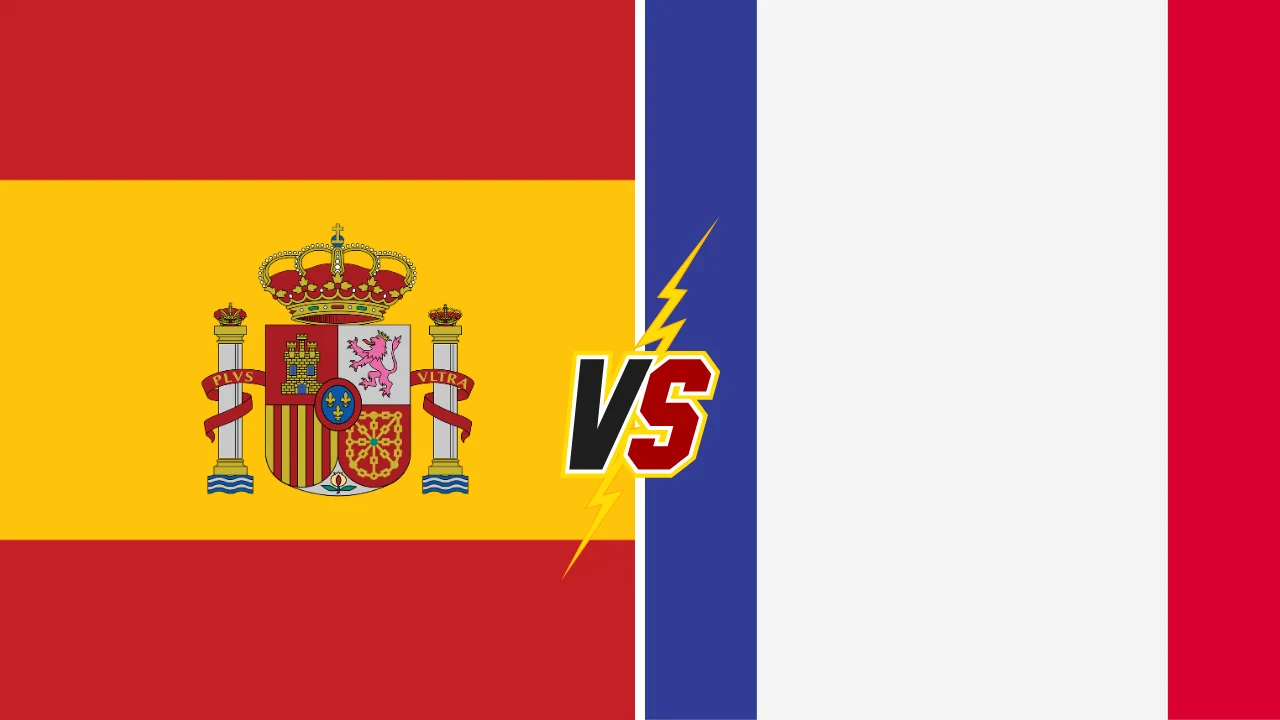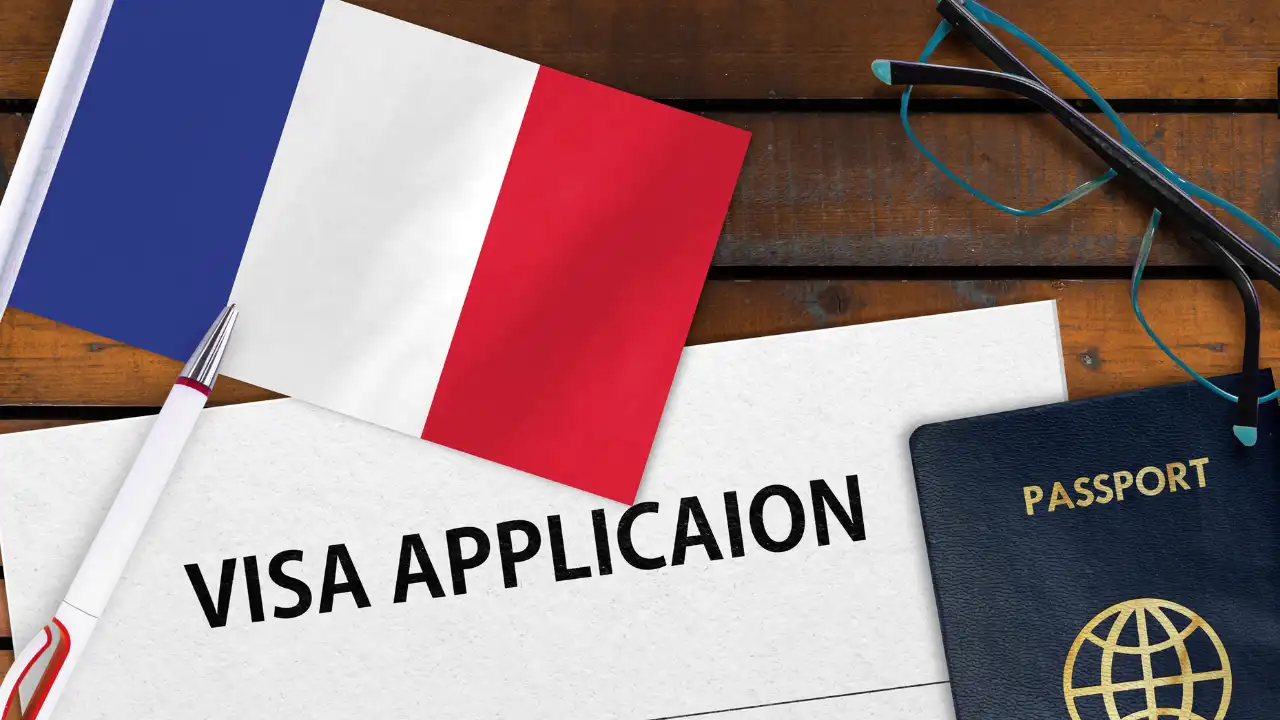Thinking about relocating to Europe, but torn between Spain vs France? You’re not alone. With sun-drenched coastlines, world-class healthcare, and pathways to permanent residency, both countries offer attractive lifestyles and legal options. But when it comes to residency, which one truly stands out?
Let’s break down the facts, compare real opportunities, and help you decide which destination fits your goals best.
Spain vs France: Which Offers Better Residency?
Both Spain and France offer well-established routes to residency, including long-stay visas, permanent residency permits, and paths to citizenship. While France may offer slightly faster integration for spouses or entrepreneurs, Spain appeals to remote workers and retirees through flexible visa options. Your ideal choice depends on your income, lifestyle preferences, and long-term plans.
Permanent Residency Requirements in Spain
Legal Pathway to Residency
Spain offers a clearly defined path for non-EU nationals who wish to reside long-term. The process typically begins with a temporary residence permit, often tied to employment, family reunification, or financial self-sufficiency. After five uninterrupted years of legal stay, individuals may apply for permanent residency (residencia de larga duración), granting nearly all the rights of Spanish citizens, except voting and some public office positions.
Key Eligibility Requirements
To qualify for permanent residency in Spain, applicants must meet the following criteria:
- Five years of continuous legal residence in Spain
- Financial means to support yourself and any dependents (e.g., salary, pension, savings)
- Comprehensive health insurance, either public or private
- No serious criminal record, both in Spain and in prior countries of residence
- Basic integration, including an understanding of Spanish culture and, for those pursuing citizenship, a certified A2 level in the Spanish language
Notably, those who eventually aim for Spanish citizenship must pass two standardized exams: the DELE A2 language test and the CCSE (constitutional and cultural knowledge) exam, both administered by Instituto Cervantes.
Residency Permit Categories
Spain accommodates a wide range of residency needs:
- Non-Lucrative Visa: Ideal for retirees or financially independent individuals
- Digital Nomad Visa: Tailored for remote professionals with monthly earnings above approximately €2,520
- Entrepreneur Visa: For launching innovative startups recognized by the Spanish authorities
- Work Visa: Employer-sponsored positions
- Family Reunification: Spouses, children, or dependent parents of legal residents
Each permit type has distinct documentation and renewal rules, but all can contribute toward the five-year threshold for permanent status.
Application Process and Timelines
Applications are submitted through Spain’s immigration offices (Extranjería) or consulates abroad, depending on the visa. Processing times vary from 30 to 90 days for temporary permits, and slightly longer for permanent residency decisions. Renewals must be filed within 60 days before expiration. According to the European Commission, both Spain and France require five years of continuous legal residence to apply for permanent residency.
Required documents often include:
- Valid passport and prior residence cards
- Proof of income or employment contract
- Rental or homeownership documents
- Health insurance certificate
- Background check translated and legalized
A friend of mine, an online consultant from Argentina, moved to Valencia on a non-lucrative visa. At first, the paperwork seemed intimidating: translations, apostilles, even a detailed financial audit. But after settling in and renewing her permit twice, she’s now applying for permanent residency. What surprised her most was how much the system rewards consistency and patience. “As long as you follow the rules and stay organized, Spain wants you to succeed,” she told me over coffee in Ruzafa. That simple reassurance has helped many newcomers stay the course.
Permanent Residency Requirements in France
Overview of France’s Residency System
France provides a progressive pathway from temporary stay to permanent residency for non-EU nationals. The process typically starts with a long-stay visa, which must be converted into a residence permit (carte de séjour) upon arrival. After a legally continuous stay of five years, individuals may apply for Carte de Résident, the French permanent residency permit. In some cases, this period is shortened to three years, especially for spouses of French citizens or under special integration conditions.
Entry Through Long-Stay Visas
The most common route into France is via a long-stay visa—either the VLS-TS (Visa de Long Séjour valant Titre de Séjour) or the VLS-T (temporary long-stay visa). The VLS-TS acts as both a visa and a residence permit for the first year and must be validated online within three months of arrival. After the initial period, individuals must apply for multi-year residence permits based on employment, family, or private life grounds.
Requirements for Permanent Residency
To qualify for permanent residency in France, applicants must demonstrate a stable and regular income, show strong integration into French society, and have maintained lawful residence for the required period. Integration is assessed not only by duration of stay but also by language proficiency and cultural understanding. Although there is no formal language test for all applicants, authorities may require proof of sufficient French to handle daily life and administrative matters.
Permanent residency is granted for ten years and is renewable. It offers greater stability, freedom to change jobs, and access to social services similar to citizens. However, it does not automatically lead to French citizenship, which has additional legal and cultural requirements.
Spain’s Golden Visa & Digital Nomad Visa in 2025
The Decline of the Golden Visa
For years, Spain’s Golden Visa was a popular residency route for high-net-worth individuals, offering legal residence in exchange for significant investment—usually in real estate. However, as of 2024, Spain officially discontinued this program, citing housing affordability concerns and the need to prioritize sustainable immigration. This marks a major shift in the country’s immigration landscape, especially for those who previously viewed property investment as a fast-track to European residency.
While existing Golden Visa holders retain their rights, no new applications are being accepted under this program. Those looking for residency in Spain now must consider alternative routes based on employment, entrepreneurship, or self-sufficiency.
Rise of the Digital Nomad Visa
In response to the global shift toward remote work, Spain introduced the Digital Nomad Visa under the Startups Act. This visa is aimed at professionals working for non-Spanish companies who want to reside in Spain while continuing their remote employment. As of 2025, the program is well-established and particularly attractive due to its low entry barriers compared to traditional work visas.
To qualify, applicants must demonstrate a stable remote income that meets Spain’s minimum financial threshold, which currently sits around €2,520 per month. Applicants also need proof of a remote contract or client relationships, valid health insurance, and a clean legal record. This visa grants an initial stay of one year, renewable up to five years, and can lead to permanent residency after the standard five-year mark.
Remote Work and Lifestyle Appeal
The Digital Nomad Visa has proven especially popular among professionals in tech, design, consulting, and online business. Cities like Barcelona, Valencia, and Málaga have become remote work hubs, offering high-speed internet, co-working spaces, and an international community. Many applicants also appreciate Spain’s relatively low cost of living and Mediterranean climate, which provides a compelling contrast to life in Northern Europe or urban centers elsewhere.
France’s Entrepreneur Visa and Long-Stay Visa Options
Introduction to French Long-Term Immigration Pathways
France offers several long-stay visa options for non-EU nationals who wish to reside in the country beyond the typical tourist window. Whether the goal is to start a business, work remotely, or join a family, these visas open the door to temporary and eventually permanent residency. Two popular options include the Entrepreneur Visa, designed for business founders, and the general long-stay visa, known as Visa de Long Séjour (VLS). These are governed by French immigration law and are intended to ensure both economic contribution and integration.
The Entrepreneur Visa: Building in France
The French Entrepreneur Visa, part of the broader “Talent Passport” scheme, is intended for those planning to start or operate a business in France. Applicants must submit a detailed business plan, prove that the venture is economically viable, and demonstrate sufficient financial resources, typically around €30,000 in projected investment. The business must be seen as contributing to the French economy, either by creating jobs or offering an innovative service.
This visa is initially granted for up to four years and is renewable as long as the business remains active. Over time, successful entrepreneurs can transition to permanent residency, provided they maintain legal residence and continue meeting income and tax obligations. This route is ideal for seasoned professionals with a solid business background and a commitment to long-term settlement in France.
The Long-Stay Visa: VLS-T and VLS-TS Explained
The long-stay visa (VLS) comes in two primary forms: VLS-T and VLS-TS. The VLS-T is for temporary stays exceeding three months but is not intended for permanent relocation. It cannot be renewed or converted into a residence permit. In contrast, the VLS-TS acts both as a visa and a temporary residence permit and is valid for up to one year. Upon arrival, visa holders must validate it online with the French Immigration and Integration Office (OFII) and may later apply for a multi-year carte de séjour if their stay is extended.
Applicants must provide evidence of income, accommodation, health insurance, and purpose of stay, such as employment, family reunification, or personal projects. The process is rigorous but transparent, with clear legal procedures for appeal and renewal.
Challenges and Benefits of French Bureaucracy
France’s immigration process is often seen as bureaucratic, and it does require patience. Application timelines can vary by consulate, and documentation must be thorough. However, those who prepare carefully and meet eligibility standards generally find the system fair. The benefits of success include access to high-quality public services, legal work rights, and the ability to bring family members under dependent visas.
A unique advantage of French long-stay and entrepreneur visas is their flexibility. Entrepreneurs may pivot their business model or change legal structures without needing to reapply for an entirely new visa, as long as they inform the relevant prefecture and stay within the legal framework. This adaptability appeals to founders navigating uncertain markets or evolving startups.
Cost of Living Comparison: Spain vs France
Introduction to European Living Costs
One of the most important factors when deciding where to relocate in Europe is the cost of living. Spain and France, while geographically close, offer distinctly different price landscapes. From groceries and rent to transportation and leisure, the day-to-day expenses in each country can significantly affect your quality of life. Understanding these differences is key to making an informed residency choice, especially for those planning long-term relocation.
Housing and Rent Affordability
In general, Spain is known for its more affordable housing market compared to France. Cities like Valencia, Seville, and even some parts of Madrid offer spacious apartments at prices significantly lower than similar properties in Paris or Lyon. In France, housing costs in urban areas, particularly in and around Paris, can be prohibitive. A one-bedroom apartment in central Paris might cost nearly twice as much as an equivalent space in central Barcelona. For many expats and digital workers, this price gap becomes a major deciding factor, especially when income is location-independent.
In suburban and rural areas, both countries present more affordable options, but Spain still retains the edge. Property taxes, maintenance costs, and homeowner fees are generally lower, making Spain more attractive for property buyers and long-term renters alike.
Daily Expenses: Food, Transportation, and Utilities
When it comes to groceries and dining, Spain continues to offer better value. Locally produced fruits, vegetables, meats, and wine are widely available and competitively priced, thanks to the favorable climate and agricultural infrastructure. Dining out in Spain is not only a cultural tradition but also surprisingly affordable, with tapas bars and set lunch menus offering full meals at a fraction of the price one might pay in France.
Transportation in France is efficient but more expensive, especially in larger cities. While France boasts an extensive rail network and high-speed TGV lines, ticket prices are often higher than those in Spain’s national Renfe system. Local metro and bus services are also more affordable in Spanish cities, contributing to lower monthly commuter costs.
Utilities such as electricity, gas, and internet tend to be slightly cheaper in Spain, although regional differences exist. Heating costs can be higher in northern Spain during winter months, but France’s colder climate makes this expense more consistent throughout the year.
Healthcare and Education Costs
Both Spain and France offer robust public healthcare systems, but France’s system is often rated slightly higher in terms of accessibility and speed. However, Spain’s public healthcare is free or low-cost for residents and ranks highly for quality of care. Out-of-pocket expenses for private consultations or medications are generally lower in Spain, giving it an edge for those without full public coverage.
In education, both countries offer free public schooling, but international or bilingual schools are more widespread and often more expensive in France. University education in both countries is highly subsidized, but Spain tends to have lower tuition fees and living costs for students.
Healthcare and Public Services Access
Understanding the Healthcare Systems
Spain and France both offer high-performing public healthcare systems ranked among the best globally. Each country ensures access to care for residents through national insurance models that differ slightly in structure but aim for universal coverage. While citizens and permanent residents are fully integrated into these systems, temporary residents and newcomers must navigate specific registration and eligibility processes to gain full access.
In Spain, the public health system is managed at the regional level, which means that access and procedures can vary depending on where you live. Once legally registered as a resident and enrolled in the local municipal register, individuals receive a health card known as the TSI. This card grants access to general practitioners, hospitals, and specialists within the public network. For those not yet eligible, such as digital nomads or early-stage retirees, private insurance is required to obtain residency status.
France operates under the Protection Universelle Maladie (PUMA) system, which guarantees healthcare access for all residents after a three-month stay. Applicants must prove legal residence and either employment or stable income to enroll. Once accepted, patients receive a carte vitale that enables automatic reimbursement of most medical expenses. The French system is often praised for its efficiency and integration, especially in urban areas where medical facilities are numerous and well-staffed.
Comparing Service Quality and Costs
While both countries boast excellent healthcare standards, France is frequently cited for its slightly faster appointment availability and more comprehensive coverage. French residents typically receive 70 percent reimbursement for most services, with the remaining balance covered by optional private top-up insurance known as mutuelle. Spain offers nearly free services through the public system, but wait times for certain specialists or procedures can be longer, particularly in less populated regions.
Private healthcare is widely available in both countries and is used either for faster service or specific specialists. In Spain, private care is more affordable and often used alongside the public system, while in France, many residents combine public coverage with supplementary insurance to reduce out-of-pocket costs. Pharmacies in both countries are accessible and well-regulated, with medication prices generally lower in Spain.
Public Services Beyond Healthcare
In addition to healthcare, both Spain and France offer extensive public services that support daily life and integration. Residents can access education, public transportation discounts, childcare support, and housing subsidies under certain conditions. Spain has a more decentralized model, where regional governments administer social benefits, while France operates a more centralized welfare state with consistent national policies.
Public schooling is free in both countries and generally of high quality. In Spain, there is growing access to bilingual and international schools, especially in major cities. France offers strong early-childhood education programs and a wide network of lycées and public universities. Newcomers may also access integration programs, including language classes and cultural orientation, which are more formalized in France.
Tax Considerations for UAE Residents
Why Tax Residency Matters
For individuals relocating from tax-free jurisdictions like the UAE, understanding the tax implications of becoming a resident in Spain or France is critical. Both countries tax global income based on residency status, and becoming a fiscal resident can have far-reaching implications—not just for income, but also for investments, real estate, and inheritance planning.
When You Become a Tax Resident
In both Spain and France, you are typically considered a tax resident if you spend more than 183 days in the country in a calendar year or if your primary economic interests are based there.
- Spain: You become a tax resident if you spend over 183 days in the country or if your “center of economic interests” is located in Spain.
- France: You’re a tax resident if France is your principal place of residence, your main professional activity occurs there, or your center of economic interests is in France.
Income Tax Obligations
Once you are classified as a tax resident, both countries require you to declare worldwide income. This includes salary, dividends, rental income, capital gains, and foreign pensions.
- Spain: Income tax ranges from approximately 19% to 47%, depending on income level and region.
- France: Income tax starts at 0% and goes up to 45%, with additional social contributions ranging from 9% to 17.2%.
Wealth, Capital Gains, and Inheritance Tax
Both countries impose taxes beyond personal income, which can affect those with significant assets or estate planning needs.
- Spain:
- Capital gains tax ranges from 19% to 28%.
- Some regions impose a wealth tax on global assets exceeding €700,000.
- Inheritance and gift taxes vary by region and relationship to the deceased.
- France:
- Capital gains are taxed similarly, with social charges added.
- France does not impose a wealth tax on financial assets, but real estate is subject to the Impôt sur la Fortune Immobilière (IFI) for properties worth over €1.3 million.
- Inheritance tax depends on kinship and can reach up to 45% for distant relatives or unrelated individuals.
Double Taxation Treaties
Both Spain and France have signed tax treaties with the UAE to prevent double taxation, but their interpretations vary.
- Spain–UAE Treaty: Limits the ability of Spain to tax certain types of UAE-based income. Useful for pensioners and business owners.
- France–UAE Treaty: Offers protections, but requires clear documentation and sometimes proof that tax was already paid or due in the UAE.
These treaties can reduce or eliminate tax on some income types but do not exempt you from declaring that income if you’re a resident in Spain or France.
Strategies for Minimizing Tax Burden
Careful tax planning before and after relocation is essential. Strategies may include:
- Establishing tax residency in a country before income spikes
- Structuring remote income to take advantage of exemptions
- Using tax advisors familiar with cross-border situations and treaty provisions
- Evaluating whether residency in lower-tax Spanish regions (like Madrid) makes a difference
Cultural Fit and Lifestyle for Expats from Dubai
Climate and Environment
One of the most immediate contrasts for those relocating from Dubai is the change in climate. While Dubai is defined by desert heat and dry seasons, Spain and France offer more temperate, varied environments.
- Spain: Known for its Mediterranean climate along the coast, Spain enjoys mild winters and hot, dry summers. Cities like Barcelona and Valencia are sunny for much of the year, while inland areas like Madrid experience more seasonal contrast with cooler winters.
- France: Climate varies significantly depending on the region. Southern France (Provence, Côte d’Azur) offers a Mediterranean feel similar to Spain, while northern cities like Paris or Lyon have colder winters and more rainfall. Mountainous areas like the Alps are cold and snowy in winter but attract expats who enjoy skiing and outdoor sports.
Language and Communication
Language adaptation is often a hurdle for expats used to English-dominant environments like Dubai.
- Spain: Spanish (Castilian) is the national language, with regional dialects like Catalan, Galician, and Basque. English is increasingly spoken in urban areas, but fluency in Spanish is expected for integration, especially in administrative and social settings.
- France: French is the official language, and while urban areas offer some English accessibility, day-to-day life still requires basic French. The French value language as part of their identity, so making the effort to speak it often earns respect and smoother integration.
Social Norms and Integration
Cultural expectations around behavior, time, and social life differ markedly from the UAE.
- Spain: Known for its relaxed pace and sociability, Spain values personal connections, long meals, and late-night socializing. Bureaucracy can feel slow, but personal networks are key to getting things done. Family is central to society, and expats often find it easy to integrate through local festivals, language classes, and neighborhood events.
- France: French culture is more formal, especially in cities. Punctuality, polite language, and respect for hierarchy are emphasized. While integration may take longer, once accepted, friendships run deep. Cultural activities, wine tasting, art, and intellectual debates are integral parts of social life.
Religious and Cultural Tolerance
Expats from Dubai may find the cultural and religious landscape in Europe less centered around faith-based life.
- Spain: Predominantly Catholic, but largely secular in practice. There’s widespread tolerance of other religions, and many mosques operate in larger cities. Halal food and international products are readily available.
- France: Also largely secular, with a strong legal emphasis on laïcité (separation of church and state). This can sometimes present challenges for visible religious expression. Nonetheless, France has large Muslim communities, especially in cities like Marseille and Paris, with established support networks and cultural centers.
Work-Life Balance and Daily Rhythm
Daily structure and lifestyle rhythm are strikingly different compared to Dubai’s often fast-paced work culture.
- Spain: Famous for its flexible work hours and afternoon siestas in some regions. Work-life balance is generally respected, and socializing after work is common. The week often revolves around family and leisure.
- France: Work culture is structured, with strong labor protections and a legal 35-hour workweek. Vacations are a priority, with most employees taking several weeks off each year. Sundays are traditionally quiet, with shops closed and families gathering at home or restaurants.
Residency Timelines and Path to Permanence
When it comes to the path toward permanent residency, both France and Spain follow similar timelines. In each country, you generally need to reside legally for five continuous years to become eligible for permanent residency status. However, France offers a shortened route of just three years for certain categories, such as spouses of French nationals or those who have demonstrated strong integration efforts. In Spain, the five-year rule is strict, and gaps in legal residency or extended time outside the country can reset the timeline. That said, both countries value consistent legal presence and documented ties to their societies when reviewing permanent residency applications.
Visa Options for Entrepreneurs and Remote Workers
France and Spain offer distinct but overlapping visa pathways tailored to today’s mobile professionals. Spain recently overhauled its immigration framework to support digital nomads, offering a dedicated visa for remote workers employed by companies outside of Spain. The minimum income requirement is accessible for many mid-career professionals, and the visa leads to residency renewals and eventual permanence. France, on the other hand, leans into its “Talent Passport” and Entrepreneur Visas. These require a business plan, financial proof, and a commitment to economic contribution, making them slightly more demanding but also more comprehensive for those aiming to launch companies within France.
Taxation and Financial Transparency
The tax obligations in both countries can be a wake-up call for those coming from tax-free environments. Once you exceed the 183-day presence threshold, both France and Spain will classify you as a tax resident and expect a full declaration of global income. Spain’s tax rates range broadly by income bracket and region, with capital gains and wealth taxes layered on top in certain cases. France has a centralized tax system and adds social contributions to many taxable events, including rental income and dividends. While France does not tax worldwide financial assets in its wealth tax, it does impose a real estate-based wealth tax. Spain taxes global assets, but some regions offer exemptions or reductions. Choosing between the two may come down to how your financial portfolio is structured and where your income originates.
Cost of Living and Daily Lifestyle
Spain has the edge in affordability. Housing is cheaper, especially outside Madrid and Barcelona. Groceries, restaurants, transportation, and even healthcare come at a lower price point. France, particularly Paris and other urban centers, can be significantly more expensive across these categories. However, France often scores higher in public service quality, infrastructure, and cultural richness. If your budget is flexible and your priority is immersive culture, France may offer more depth. If you prefer a laid-back lifestyle with financial breathing room, Spain is hard to beat.
Language, Integration, and Community
French and Spanish societies value integration, but their expectations differ. France emphasizes language and civic understanding through formal integration contracts, which require participants to attend classes and demonstrate language proficiency. Spain is less formal in this regard, although language skills are still crucial for navigating bureaucracy and social life. In both countries, expats who make an effort to learn the language and engage with local communities find deeper acceptance and fewer barriers. France can be more reserved at first, while Spain is often more socially open, particularly in smaller cities and rural regions.
Key Differences at a Glance
| Criteria | France | Spain |
| Time to Permanent Residency | 5 years (3 years for spouses of citizens) | 5 years (strict, uninterrupted) |
| Language Requirements | Expected for integration, French preferred | Required for citizenship, Spanish A2 level |
| Entrepreneur Path | Talent Passport Entrepreneur visa (requires plan and funding) | Entrepreneur visa with more flexible entry |
| Remote Worker Visa | No formal digital nomad visa | Digital Nomad Visa with ~€2,520/month income |
| Healthcare Access | PUMA system after 3 months of legal stay | TSI card via registration, public or private insurance required |
| Public Service Quality | Strong, well-funded, highly structured | Good, varies by region, generally responsive |
| Cost of Living | Higher in urban areas, moderate elsewhere | Lower overall, especially outside major cities |
| Tax on Worldwide Income | Yes, includes social charges | Yes, includes wealth tax in some regions |
| Cultural Fit for Expats | Formal, structured, integration through contracts | Relaxed, social, informal integration |
| Residency Flexibility | Fewer gaps allowed, structured renewals | Slightly more forgiving on renewals |
Ready to Make the Move?
Whether you’re leaning toward the laid-back charm of Spain or the structured elegance of France, the right residency decision starts with expert guidance. If you’re considering relocation from the UAE or elsewhere, our team at The Open World can help simplify every step, from visa planning to local integration.
Start your journey today with a personalized residency consultation. Contact the-open-world.com to explore our global relocation services and discover why more professionals and families from Dubai and across the UAE are choosing Europe for their next chapter.
Final Notes on Residency Value
Ultimately, choosing between France and Spain for residency depends on personal priorities. France offers structure, support for entrepreneurs, and strong state services, making it ideal for those seeking long-term stability and deep societal integration. Spain, with its flexibility, lower costs, and relaxed pace, is perfect for lifestyle-focused individuals or those transitioning to a slower, sun-soaked way of life. Both offer viable, enriching paths, but your decision will be shaped by what you value more: structure or spontaneity, speed or serenity, formality or flexibility.
FAQs
1. Can I get residency in Spain or France without a job?
Yes. Both countries offer residency routes that do not require active employment. Spain’s Non-Lucrative Visa is designed for those with stable passive income or sufficient savings, while France allows personal long-stay visas if you can prove financial independence and accommodation.
2. Is it easier to get permanent residency in Spain or France?
Both require five years of legal residence, but France may reduce this to three years for spouses of French citizens or well-integrated applicants. Spain tends to offer a more flexible administrative process, whereas France places greater emphasis on language and cultural integration.
3. Which country has better healthcare access for residents?
France is often praised for its well-funded public healthcare system and quick appointment access. Spain also provides excellent public healthcare, though access times can vary by region. Both countries require residents to register with the national system or hold private insurance during the initial visa phase.
4. Do I need to speak Spanish or French to live in these countries?
For short-term living, basic language skills are helpful but not strictly required. For long-term integration, French proficiency is expected in France, especially for renewals and citizenship. In Spain, Spanish is necessary only for citizenship, though everyday interactions are much easier with at least beginner-level fluency.
5. Can I include my family in my residency application?
Yes. Both Spain and France allow family reunification for spouses and dependent children. The main applicant must show adequate income, accommodation, and legal status. In some cases, dependent parents may also qualify.





